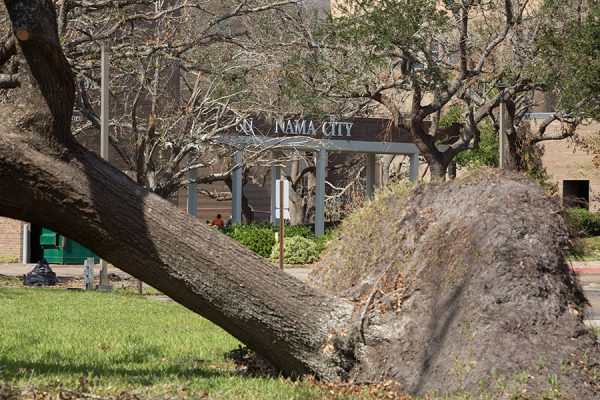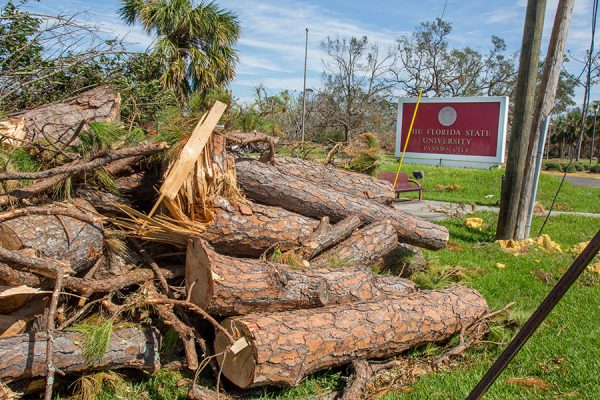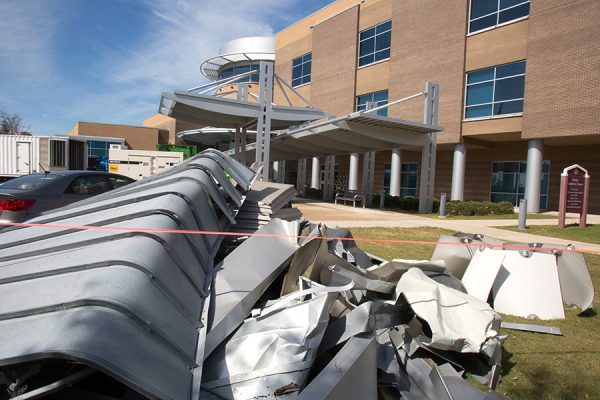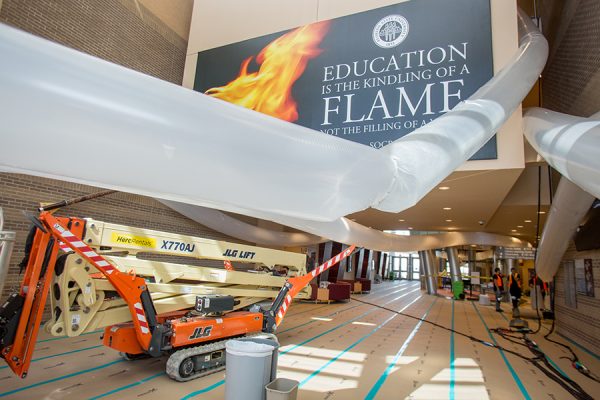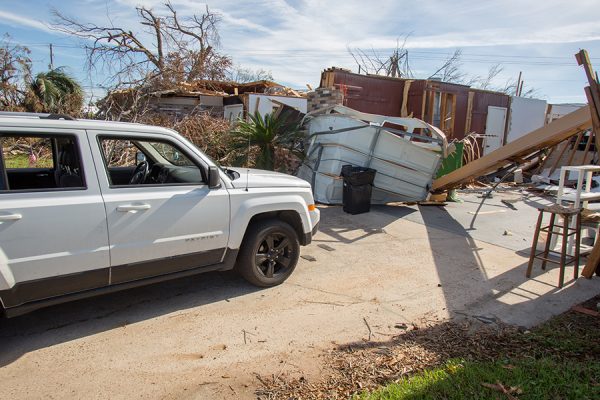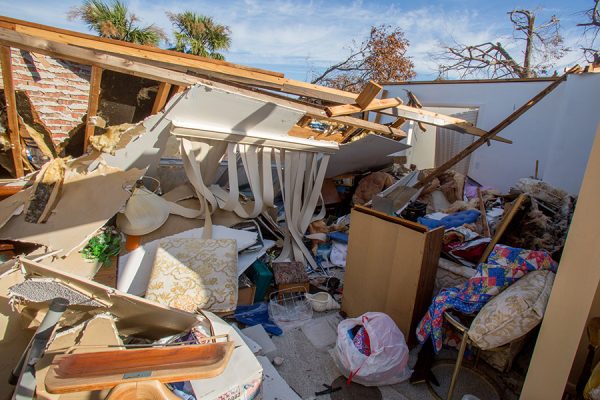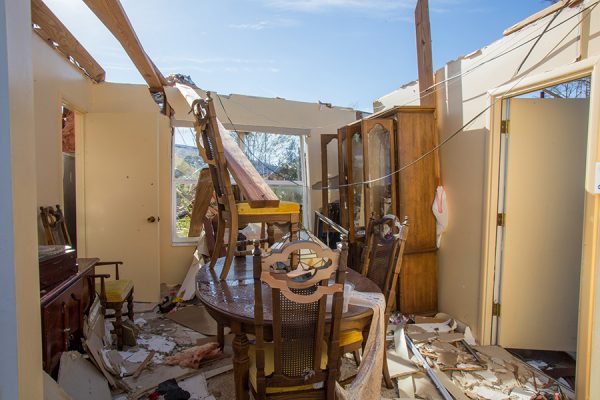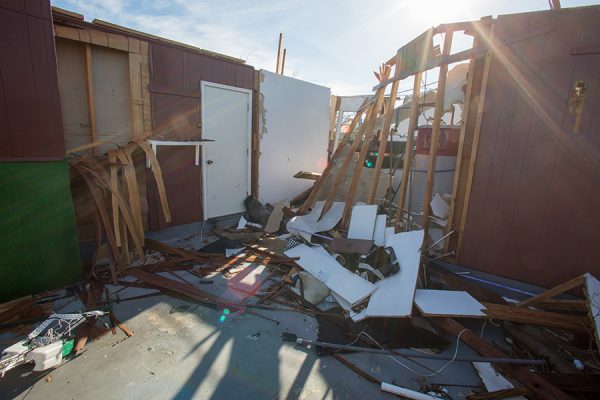Two weeks ago, Florida State University student Molly King never thought she’d be 23 years old and homeless.
But that was before King and the rest of the Florida Panhandle met the Category 4-force winds of Hurricane Michael.
Now, the senior majoring in professional communications is trying to salvage anything she can from her rental home in Callaway, Florida, a small suburb of Panama City.
King, like most people in the area, is now adjusting to a new way of life. She’s lost her job at a childcare center because the building is too damaged to reopen. Her days now consist of going to get gas and finding an internet connection to keep up with her schoolwork. Thankfully, her parents’ and grandparents’ homes had only minor damage so she is able to sleep at their houses.
“We’ve really just been taking it a day at a time because you really can’t go any further than that right now,” King said. “We’ve just been salvaging the things we can from the house. You really can’t look past anything after one day because it’s so devastating.”
While FSU Panama City classes don’t resume until Monday, Oct. 29, her online course through FSU’s main campus resumed Oct. 15.
She’s struggling, but determined, to keep up.
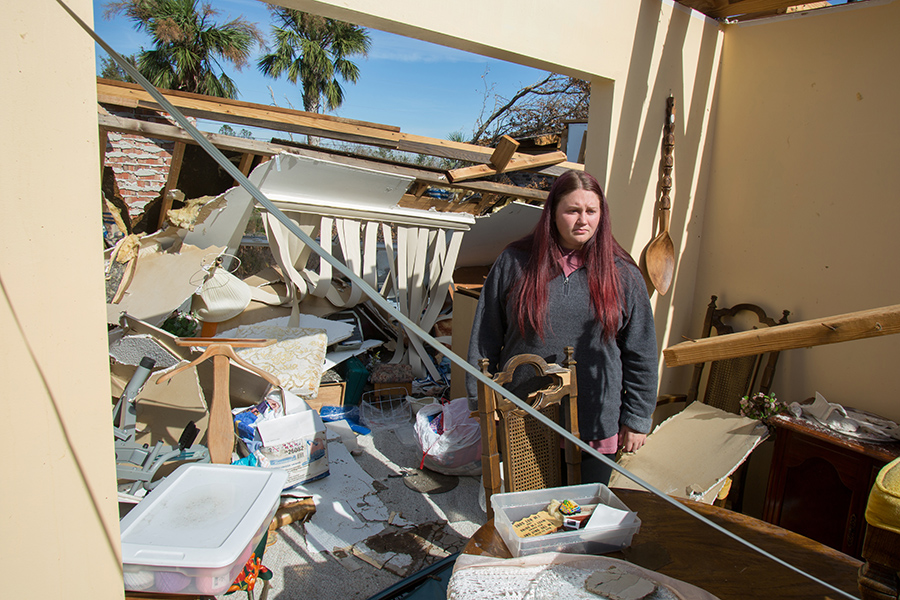
With a 100 average in the class, she refuses to take an incomplete or drop the course altogether. King, who carries a 3.9 GPA, is on track to graduate next semester and doesn’t want to push that back, so she heads over to the beach where the Panera Bread at Pier Park has WiFi.
“I’m trying to make it work,” King said. “I drive almost two hours to try and get my schoolwork done.”
She’s extremely grateful to the faculty, staff and student government representatives who’ve checked on her.
“I’ve even had a professor offer to come help me salvage my things — that’s how sweet and amazing the faculty and staff are here,” King said.
Despite all of the obstacles — scrounging for basic necessities, no power, losing all of her material belongings — King’s perseverance is palpable.
“I’ve never wanted something more than I want a degree, and this storm will not change that,” King said. “I’m going to do whatever it takes for me to graduate — with honors. I’m not going to let this hold me back. It’s going to be really, really tough and take a lot of hard work and determination, but when I get that diploma, it will be worth it.”
King is one of many students — and faculty and staff — with similar experiences.
Antonio Lopez is a senior entrepreneurship major who’s lived in Panama City his entire life and experienced countless storms. He admitted not always believing the media hype leading up to the storm because the area has never been hit this hard.
This time, the weather forecasters had it right, and Lopez took them at their word, evacuating to a family member’s house in Atlanta. There, he watched the news coverage and received texts from friends about people running from one house to another to seek shelter as their homes were destroyed.
“We just need support. Every bit that someone can do to help us out is so appreciated.” —Antonio Lopez, senior entrepreneurship major
When he returned from Atlanta, Lopez’ home was gone, but he was thankful his family and friends were safe.
“You worry about everyone around you,” Lopez said. “At the same time, you have your own situation to deal with. I don’t have a house but every time I heard from a friend I thought, ‘I’m safe. My friends are safe. My family is safe. We can rebuild. We can move forward — that’s all that matters.’”
And while Lopez wants to rebuild and move forward, he said that is difficult when you look around and see nothing left.
“We just need support,” Lopez said. “Every bit that someone can do to help us out is so appreciated.”
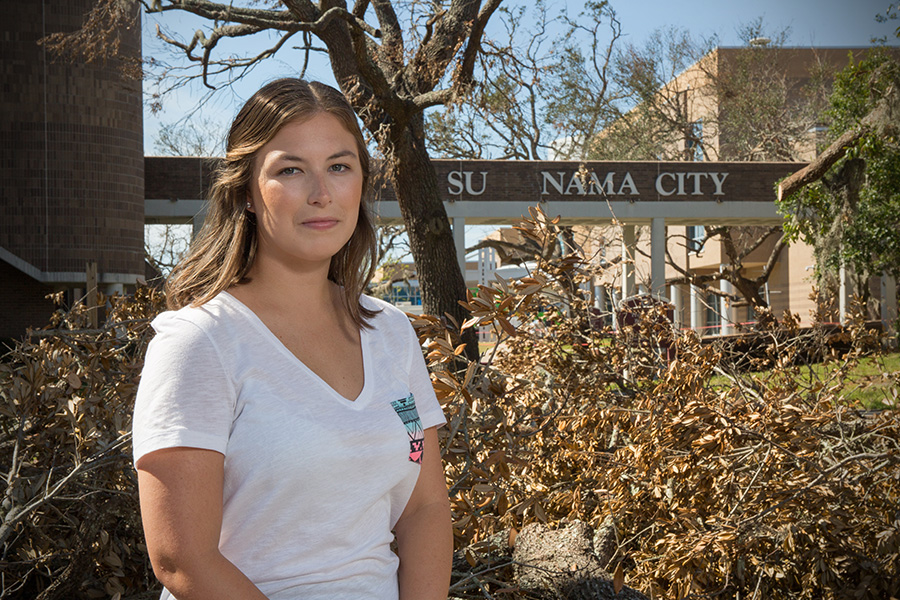
Justine Powell is one semester shy of graduating with a master’s degree in professional communication from FSU Panama City. She rode out the storm in the bathroom of the house where she lives with her parents in Parker, a small city across the bay from Tyndall Air Force Base.
While their home suffered major damage, it’s still standing. For days after Michael, their only mode of communication was an emergency radio that gave them reports where they could find shelters, meals and water — if they could get there.
Powell, who serves as president of FSUPC’s Student Government Council, said she’s still adapting to life after this major interruption.
“It’s been really hard to adjust to our new normal,” Powell said. “It’s felt so weird not having a schedule to get up and go to work or school. For a while, I just threw myself into helping my family and neighbors clean up and try to make it look like normal.”

People are still without power and water in many parts of the area. They need tarps for their roofs, and they need food because stores and restaurants haven’t reopened. She also knows a lot of students who have been displaced from their homes and are looking for new places to live.
“A lot of them were in very affected areas and have had to leave their homes and go further out and drive longer distances just to get to school,” Powell said.
It’s important that the entire FSU community bands together during this trying time, Powell said.
“We are looking at years ahead of us,” Powell said. “We haven’t seen a storm like this in our history. It’s going to take everyone to help us rebuild. We’re going to need support from outside our communities.”
Not knowing how the FSU Panama City campus fared in the storm was very stressful, so Powell is happy that campus is still standing and classes will resume Oct. 29. It gives her a sense of hope and normalcy as she aims to finish her degree.
“To go through this and still finish is going to be a challenge, but it’s a challenge I’m willing to accept because it’s important,” Powell said.
Powell wants her fellow students to know that the student government, deans, faculty and staff are ready and willing to lend a hand or find them the support they need.
“They want us to succeed,” Powell said. “They want us to get through this, and they’re going to help us.”





